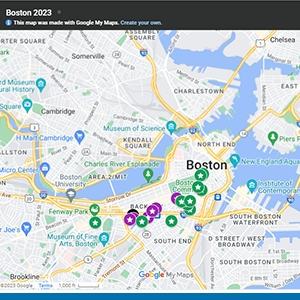
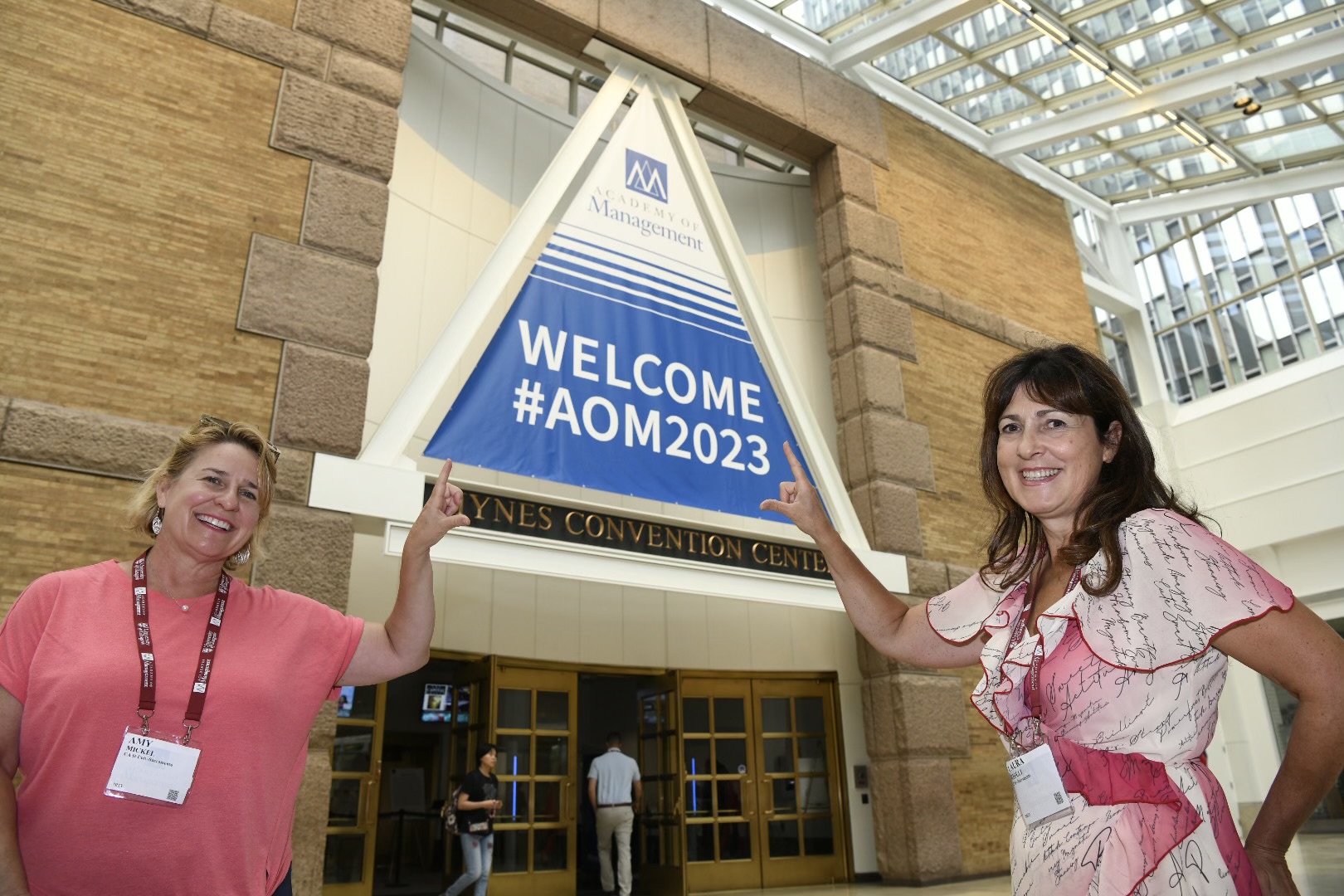
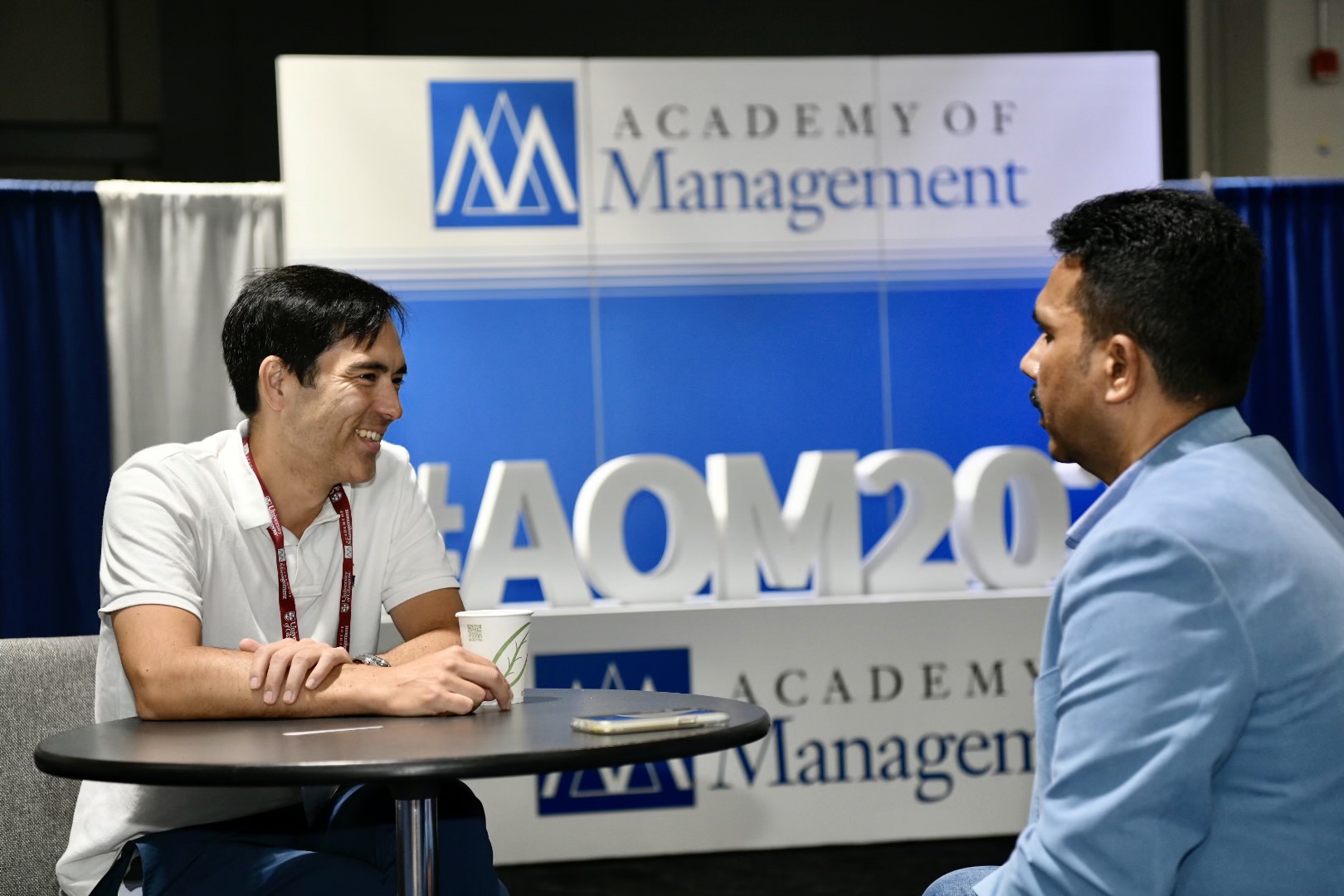
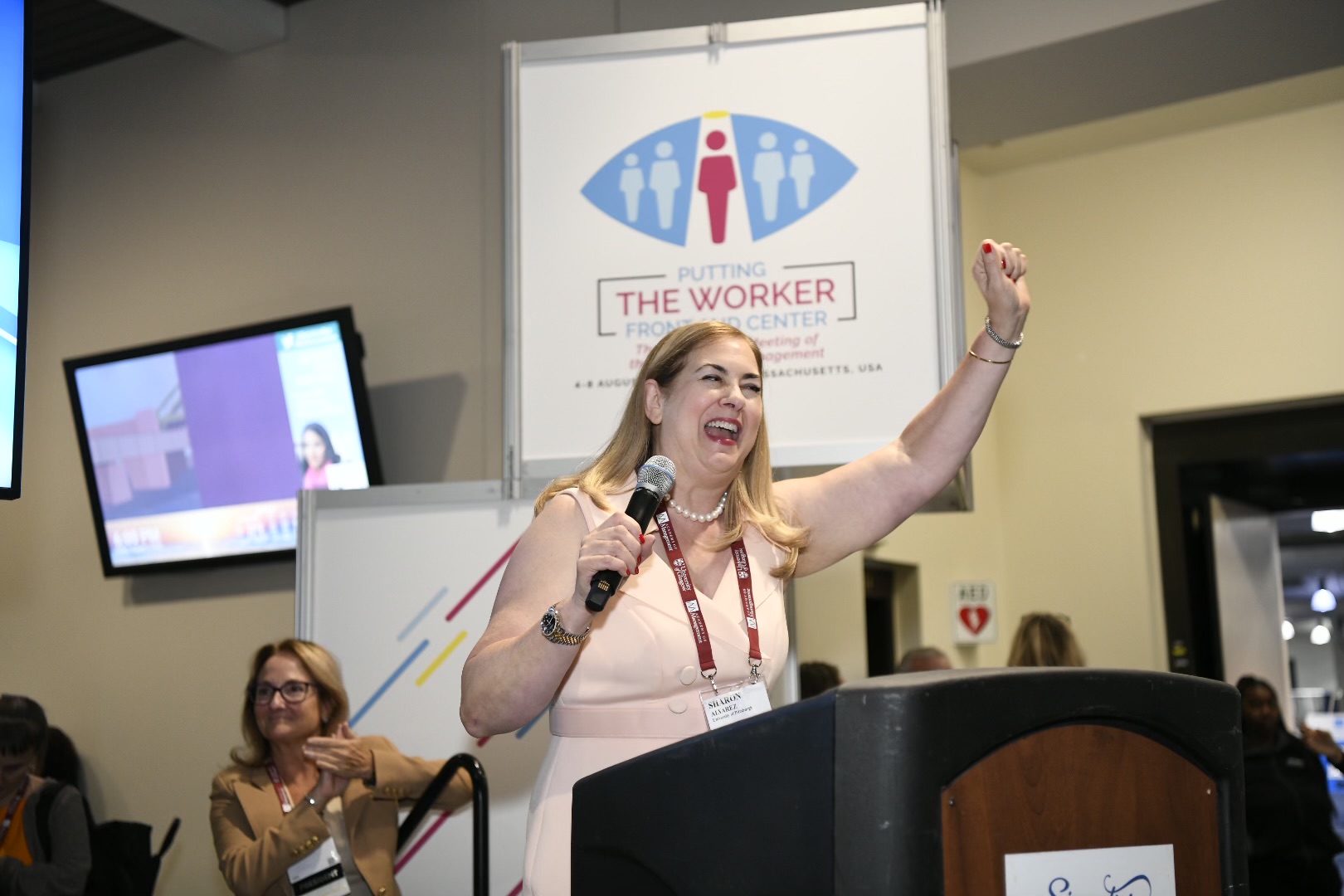
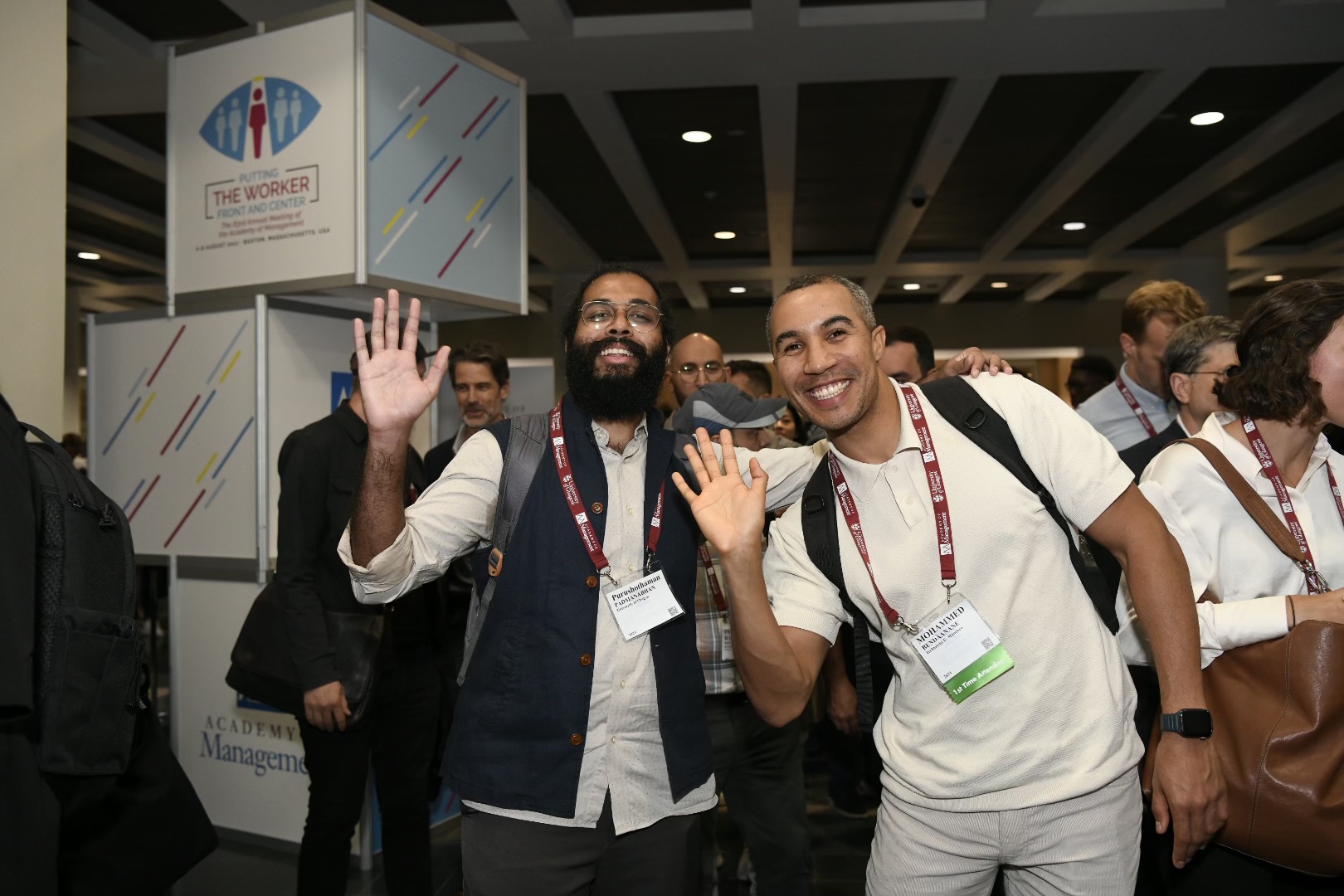
AOM 2023 Highlights
This year’s Annual Meeting featured:
- 10,000+ attendees
- 397 TLC@AOM
- 12,000+ program participants
- 2,300+ sessions
- Attendees from 80+ countries
- The inaugural Annual Meeting Opening Reception with opportunities to meet with AOM’s leaders both past and present
- A new online platform to review the program, create a customized schedule, chat with other attendees and authors, review uploaded session materials and contribute to online discussions.
- A pre-recorded Presidential Address
- Expanded networking hubs and opportunities to meet with DIG leaders
- Access to the Career Fair (by appointment)
- Over 30 different journal sessions, including reviewer workshops, "publishing in” sessions, and meetings around academic fundamentals such as writing, developing, and publishing research in the field of management
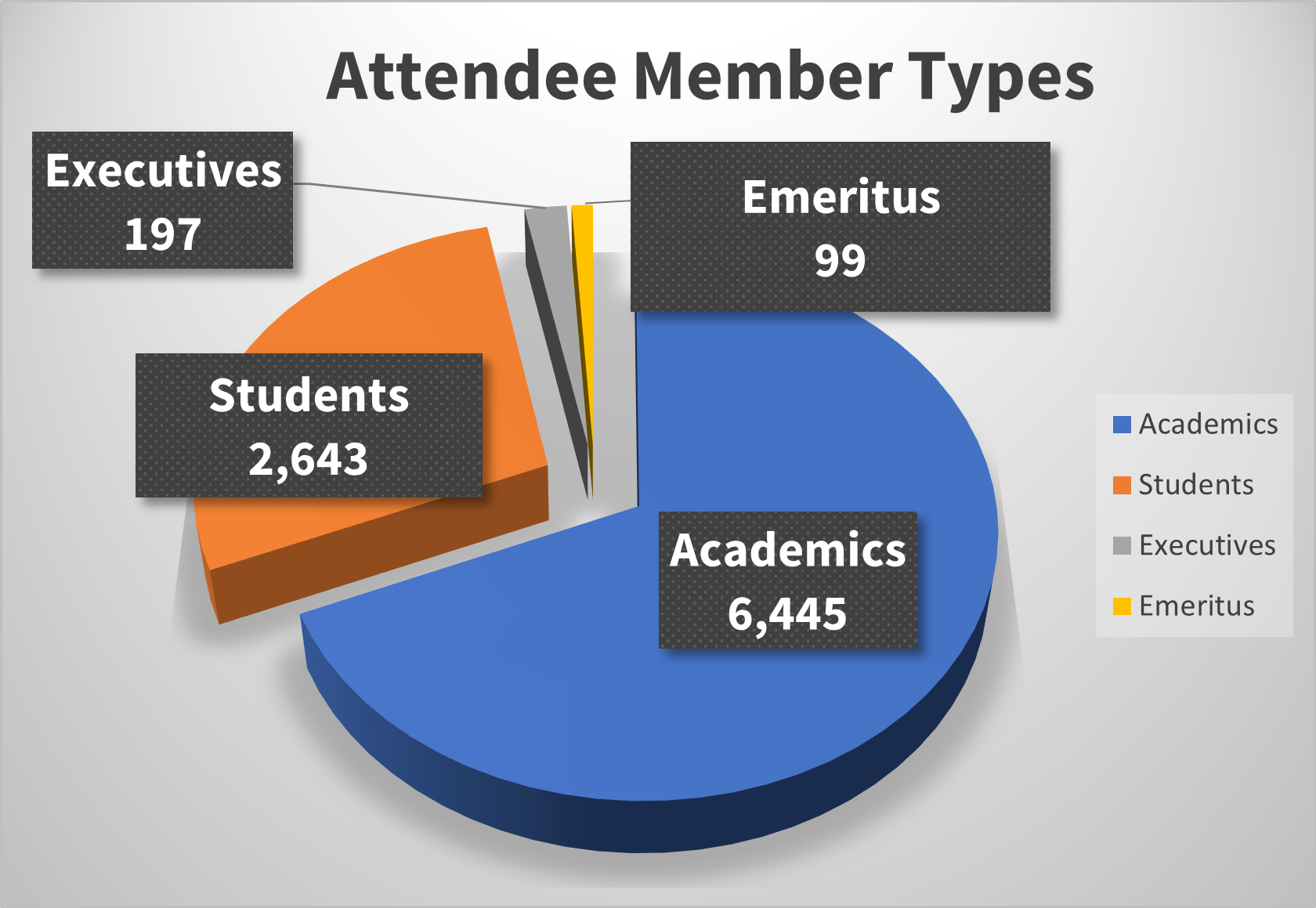
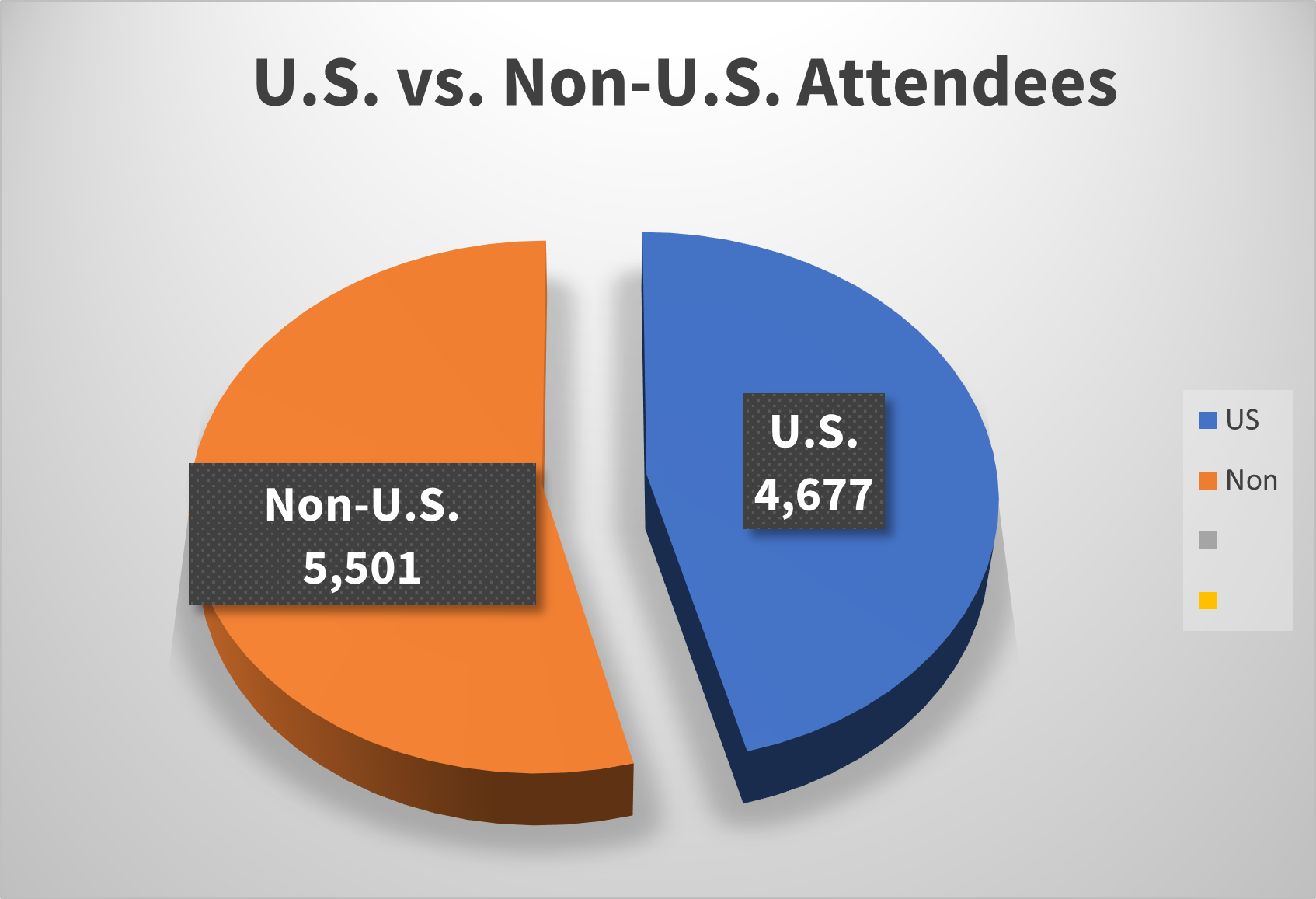
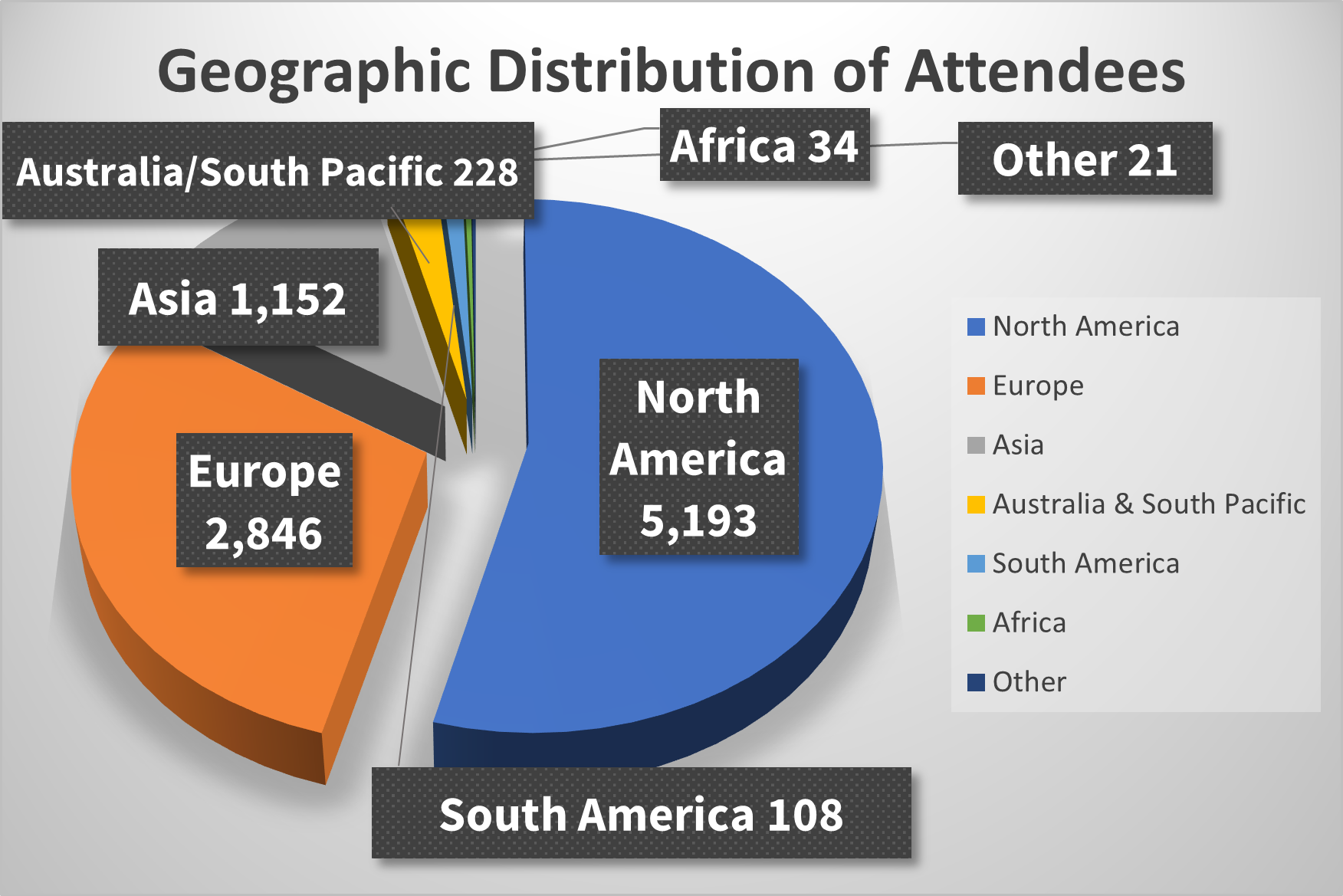

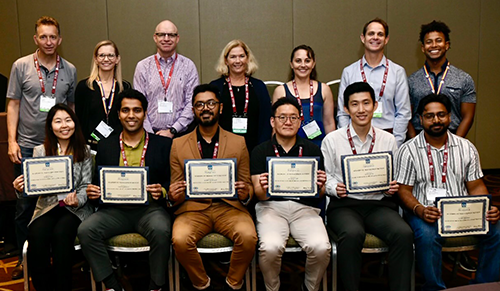
AOM 2023 Theme
Putting the Worker Front and Center
83rd Annual Meeting of the Academy of Management
4-8 August 2023
Vice President and Program Chair: Peter Bamberger, Tel Aviv University
The post-pandemic world is witnessing a dramatic shift in workplace power dynamics. Declining globalization (e.g., US-China trade restrictions, Brexit) and a shift towards “re-shoring”, together with the retirement of the baby boom generation, ever-widening income inequalities, intensive workplace cyber-monitoring, and most recently, the Great Resignation have created a perfect storm of increasingly severe talent shortages and intensified labor activism (e.g., the “anti-work” movement). Media reports highlight pent-up frustration among workers over “toxic” work environments and dangerous working conditions, low wages, and concern over the sustainability of all things other than employees. This historic shift, and the supply chain issues associated with it, underscore the relevance, importance and potential impact of management research and education. But this shift also highlights the current limitations of our literature to provide meaningful insights and responses to the current workplace challenges faced by managers, policy-makers and labor alike.
An examination of articles appearing in our field’s top journals gives the impression that management scholarship largely focuses on executives, managers, and professionals, and the issues important to them such as leadership, team effectiveness, governance, innovation, network facilitation, and organizational identity, resilience and transformation. All too rare is the occasional article examining collective voice, employee discipline and dispute resolution, the social implications of employment-at-will and incentive pay, and the daily challenges of many “essential workers” to feed their families. Moreover, despite the fact that the majority of the world’s labor force is still comprised of peasants, subsistence farmers and migrant workers, to date, management scholarship has offered little insight into the nature of marginalized work, or how organizations and institutions might better interface with this massive workforce.
Put simply, global shifts in the geo-political, environmental, demographic, and technological landscape are introducing unprecedented levels of uncertainty into labor markets and employment relations. With the world waiting for answers, the onus is on management scholars to offer new theoretical approaches and evidence-based insights that might allow managers, policy makers and labor leaders to more effectively and collaboratively meet the challenges presented. By “putting the worker front and center”, the 2023 theme calls for our community to rebalance our attention, and pivot towards those at the very core of productive enterprise, namely the workers.
Such a rebalancing calls for us as a community of scholars to offer a multifaceted array of impactful contributions by addressing such questions as: What operational and employment strategies are required for enterprises to more effectively and sustainably leverage their people potential? How should strategic planning processes be adjusted to ensure the due consideration of human resource sustainability? How are geo-political and institutional shifts transforming the experience of work, and what are the micro-processes driving this transformation? What are the individual, organizational and societal implications of employee “side hustles” and what can organizations do to leverage the growing employee interest in engaging in such activity? What can governments and organizations do to facilitate the emergence and success of entrepreneurship among marginalized workers? How is the changing nature of work and “anti-workism” transforming collective voice and the institutions through which it is expressed around the world, and indeed, what underlies the emergence of new forms of worker organization within and across workplaces? How is the AI revolution impacting primary and secondary labor markets and shifting the nature of work and employment for marginalized workers? How might the current shift in workplace power dynamics transform the nature of organizational governance and what impact (if any) is it likely to have on executive pay and pay equity more generally? What new methodological approaches are needed to understand and address the challenges faced by the world’s four billion peasants? How might we more effectively expose our students to the experience of marginalized workers and the factors underlying anti-workism?
Management research has paid a lot of attention to workers as “human capital”, or in other words, the object of managers’ efforts. We have paid far less attention to workers as subjects. The 2023 Annual Meeting is our opportunity to become scholars OF management, not just scholars FOR management, and as such, to rebalance – in both our research and teaching -- the perspectives of managers and of the workers they manage.
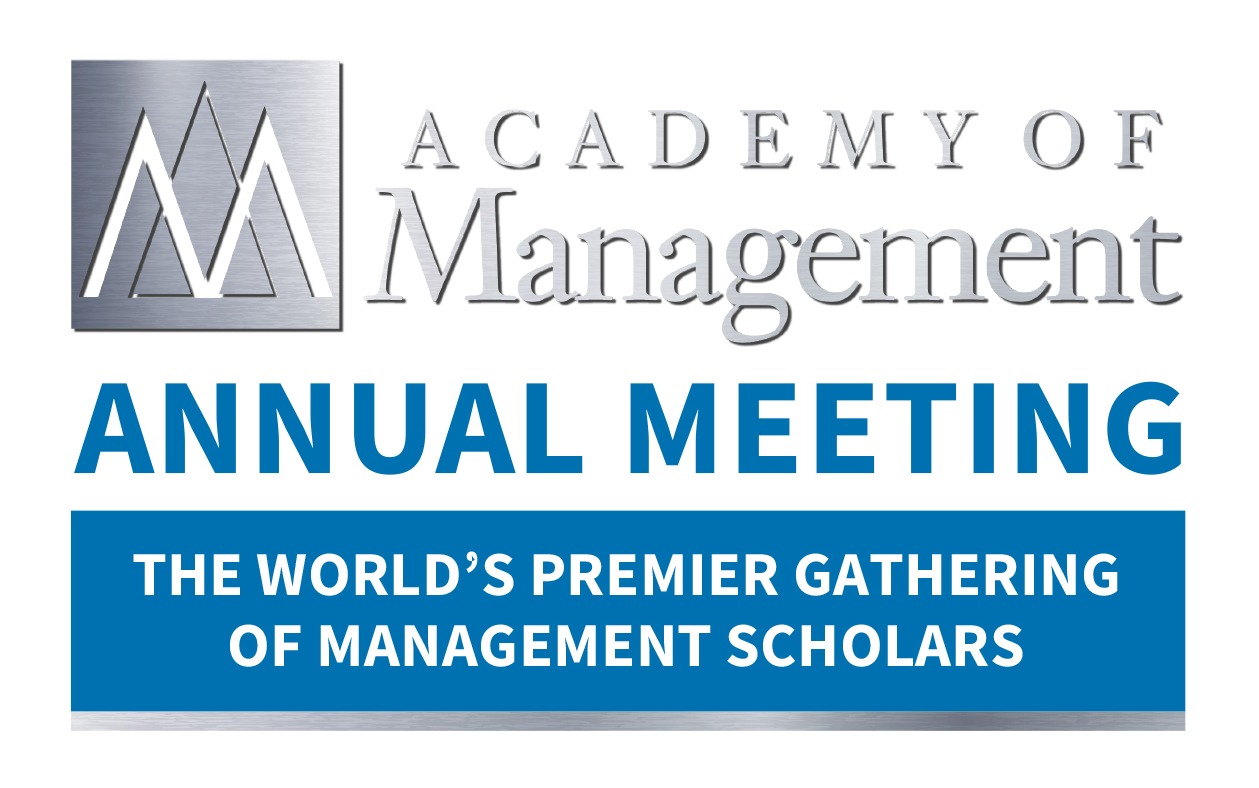 85th Annual Meeting of the Academy of Management
85th Annual Meeting of the Academy of Management